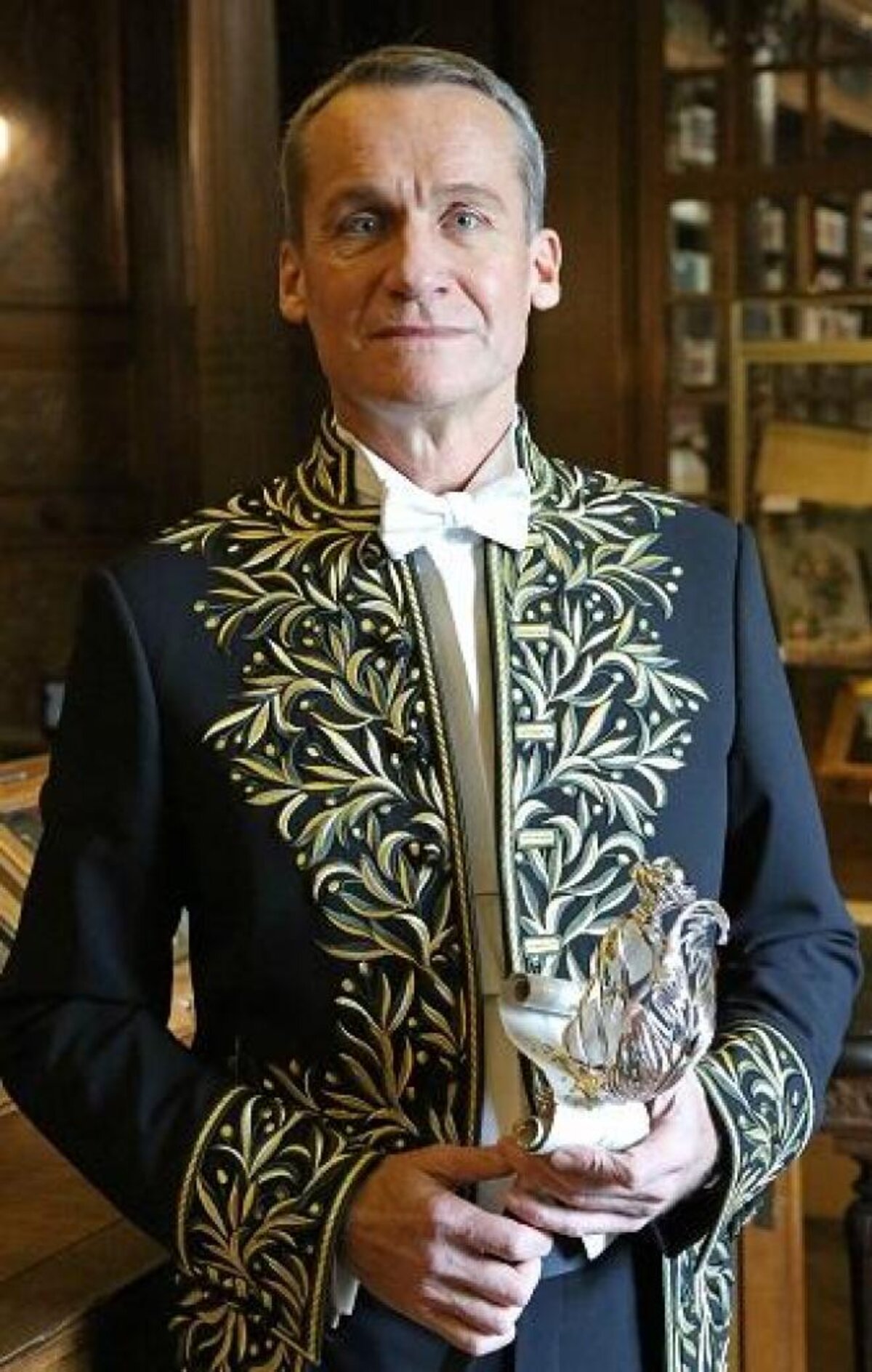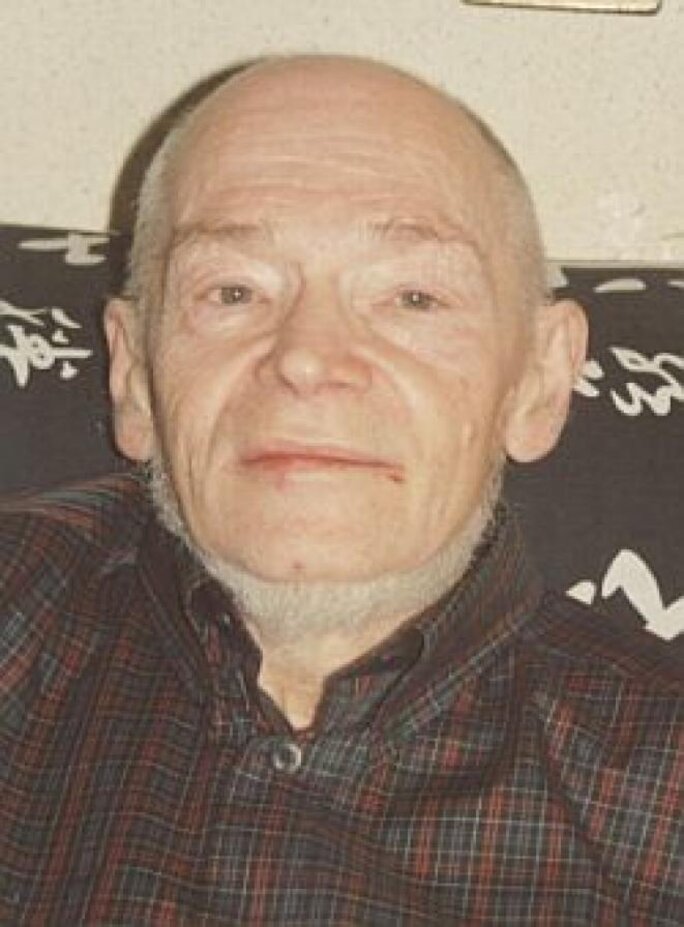The fate of Andreï Makine, born in 1957 
Agrandissement : Illustration 1

His work – ample, memorial, vertiginous – goes on, winning a faithful readership along the way. In 2016, he was elected to Assia Djebar’s seat in the Académie française, becoming its youngest member. An enthusiast of masks, subterfuges and quadruple-bottoms, the often discreet, elusive, secret author sometimes comes out of the woods to defend a cause that is dear to him.
His anger has not lessened since Julian Assange was turned over to the British authorities last 11 April by Ecuador, whose embassy in London had been his sanctuary for seven years. If the Australian computer scientist and cyber activist is extradited to the United States, he will be facing a potential prison sentence of more than one hundred years under the 1917 Espionage Act.
How do you see Julian Assange?
Andreï Makine: Let’s start with the last view we were given of him. We saw a shaggy, bearded old man carried unceremoniously out of the Embassy of Ecuador in London by the British police to be taken to who knows what dungeon. This immediately made me think of the Soviet dissident Alexander Ginzburg, with whom I had spent time in Paris during the Perestroika in the late eighties, when we were both contributing to a small Russian opposition paper.

Agrandissement : Illustration 2

Something else that calls Alexander Ginzburg to mind is that Ginzburg had been a contributor to a proto-WikiLeaks. It was a samizdat based in Moscow called Chronicle of Current Events, which had a network of dissidents documenting everything the repressive Soviet apparatus rolled out against the opposition. It was a unique source of information. Not meaning to compare the incomparable, news media such as Mediapart seem to me to play a similar role through their disturbing revelations in an increasingly unchecked, opaque, authoritarian capitalist system...
So in different eras, I’m seeing the manifestation of a typical situation, aimed at silencing, breaking, annihilating a provider of information that a ruling power does not wish to be made public at all. From Ginzburg to Assange, from one century to the next, from “real socialism” to frenetic capitalism, I’m seeing the same trend at work, that is, anti-journalistic barbarism!
Do you consider Assange to be a journalist?
Yes, of a new, revolutionary type. It’s true that he’s shed a few principles – such as a supposed full impartiality towards both the powerful and the weak – that certain traditional media pretend to apply in order to sell their sanitized propaganda based on the doxa of the moment.
Assange shatters this illusion by declaring the total transparency of the acts and wrongdoings of the powerful, and making all of their actions public. On the other hand, he has no interest in anybody’s private life, something that never broaches the field of his investigations, which undercuts all those who are shouting about the dictatorship of revelations and Orwellian surveillance…
Otherwise, the same hate mongers had nothing to say when the brilliant Russian critic, the political opponent Alexei Navalny, had the guts to publish aerial photographs of the palaces decked with French gardens built by oligarchs in the suburbs of Moscow.
Does denunciation never disturb you?
Denunciation is often deemed disturbing, it seems to me, in a world that has yet to make a revolutionary change, where politicians uphold that might is right, and journalists are accustomed to conniving with the powerful, whose views they pass on and words they confirm without even trying to take the slightest critical perspective. Denunciation could lead to confrontation and a form of dissidence against the official truth. But consensual slavery is just so comfortable…
On the other hand, when like Assange you contribute to prevent, diminish or eradicate some form of injustice by denouncing it, you are doing something useful. The wars being waged from Afghanistan to Libya in the name of democratic values of which Washington would be the custodian seem to me the main injustice that Assange has fought against through WikiLeaks.
Today we are worried about Donald Trump’s sabre-rattling against Iran, but don’t you think that under Hilary Clinton a military intervention would have already been engaged, given WikiLeak’s revelations on her never-say-die martial stances on the subject? And remember Madeleine Albright, stating in 1996 that killing 500,000 children during the first war on Iraq was worth it! So this raises the question: How do we stop them and who can do that?
Assange’s role has been to attack a number of archetypical situations, unveiling them so they would not to be, once again, reproduced. The same goes for the pillage of wealth in the world. Pillage both international and national. Such that Julian Assange would have got around, I’m sure, to denouncing the Russian oligarchs if he hadn’t been hobbled.
So Vladimir Putin too, the occasional subject and object of corruption, and the godfather of a faction of oligarchs?
If non-manipulated information on the subject were to be produced by the algorithms used by Assange for WikiLeaks, I would acknowledge post factum that Putin is a crook. But we’re not there yet, and I’m seeing instead a reconstructed reality that does not take into account that in a defeated Russia, where everything had to be rebuilt, Putin, playing with the chess pieces he inherited, is inconveniencing the oligarchs by acting as a statesman, however successfully or unsuccessfully.
I had stated in a previous interview with you that I was prepared to vote for a true-blue democrat as long as he’d be able to survive and run Russia without getting bumped off. This won’t happen before at least the next generation; we are not saints. But take off your anti-Putin glasses and stop seeing only control in him; you always contemplate, for instance, his grip on newspapers and television, without ever understanding the challenge posed by the Internet, where criticism rages on many websites.
Geopolitics being what it is, Assange appears as the man who contributed to get Trump elected by playing into Putin’s hands…
We can sit back and believe what the dominant media go on about. We can also question their storytelling. A Russian diplomat recently explained to me just how much Trump was not their man; he is unpredictable, he changes key government persons or senior administration officials as fast as he changes his shirt.
“The thing is, we’re lazy,” deadpanned the Russian diplomat. “We can be perfectly well satisfied with expected or fixed situations, with identified spokespersons, but with Trump, we have to face organizations that have been devastated by his presidential sweeps, to the point that we have to reconstitute everything on our side. We find ourselves struggling like blind kittens.”
Russians, between the Clintonian plague they know and Trump’s devastating, chaotic cholera, do not necessarily have the approach you seem, perhaps under the influence, to attribute to them…
Julian Assange has had some unfortunate or ambiguous words about women, homosexuals, Jews…
He is not an angel and has clearly sometimes given in to the vertigo of omnipotence and to the demigod complex, the demiurgic thrill typical of those who think they can do and undo just about anything, so open to them has the behind-the-scenes become. These psychological features, which have led to stupid or deplorable statements, should not stop us from defending this man for his essential role.
Assange should certainly have known better, but reread the texts of France’s patron saint of journalists, Albert Londres, and you will discover loads of errors and horrors, none of which should call into question the breadth of his writing or the importance of his role.
In the way Assange is being disparaged, I hear an echo of the slander that was used to wear down dissidents in the USSR. Nothing was left out: their Menshevik, not Bolshevik family in 1917; such and such a grandfather having belonged to the White Army; not to mention sexual orientation if it could be attacked…
Alexander Ginzburg, him again, when I asked him about what he would say to those reproaching him for playing into Washington’s hands – just as Assange is now accused of being a pawn for Moscow – said the following: “There is a cage in which a bird named Liberty is locked. All I am doing is opening the cage, without knowing who will take hold of the bird, to cherish it or destroy it.” In the name of what uncertainty or partly grounded fear should we then not open the cage? And should we defend Assange only when he’s been crushed, or should we have taken his side when he was still capable of opening the cage?
In any case, beyond his personal case, an information revolution is at work, which means that a ship’s captain will soon no longer be able to pollute the oceans as if nothing were wrong, the president of a hegemonic world power will no longer be able to jump into military operations in a third country without public opinion’s truly having their say. Everything will be known and will have to be known in a world that Assange will have helped to change…
How can we draw lessons from Assange’s fight by raising awareness among European, and even world opinion?
I am in favour of a major international Julian Assange Award. A both journalistic and literary award. It would distinguish a gift for writing, sound or camera work, in Turkey for instance, or in Russia, why not? As well as awarding a novel, a collection of short stories or poems, even an essay that has contributed to opening the cage.
Mediapart could take the initiative for such an award, which would elevate Assange. Once a year, the two award winners would be welcomed into a suitable place (and might even lead to marriage!). Their stay would be designed to be the very opposite of what Assange experienced in London, something like seven months in the countryside to finish some ongoing work in total peace and freedom. All you would have to do is find a region or a benefactor showing some intelligence. The residence would have the name of an embassy, the Embassy of Assange! Just do it?!



